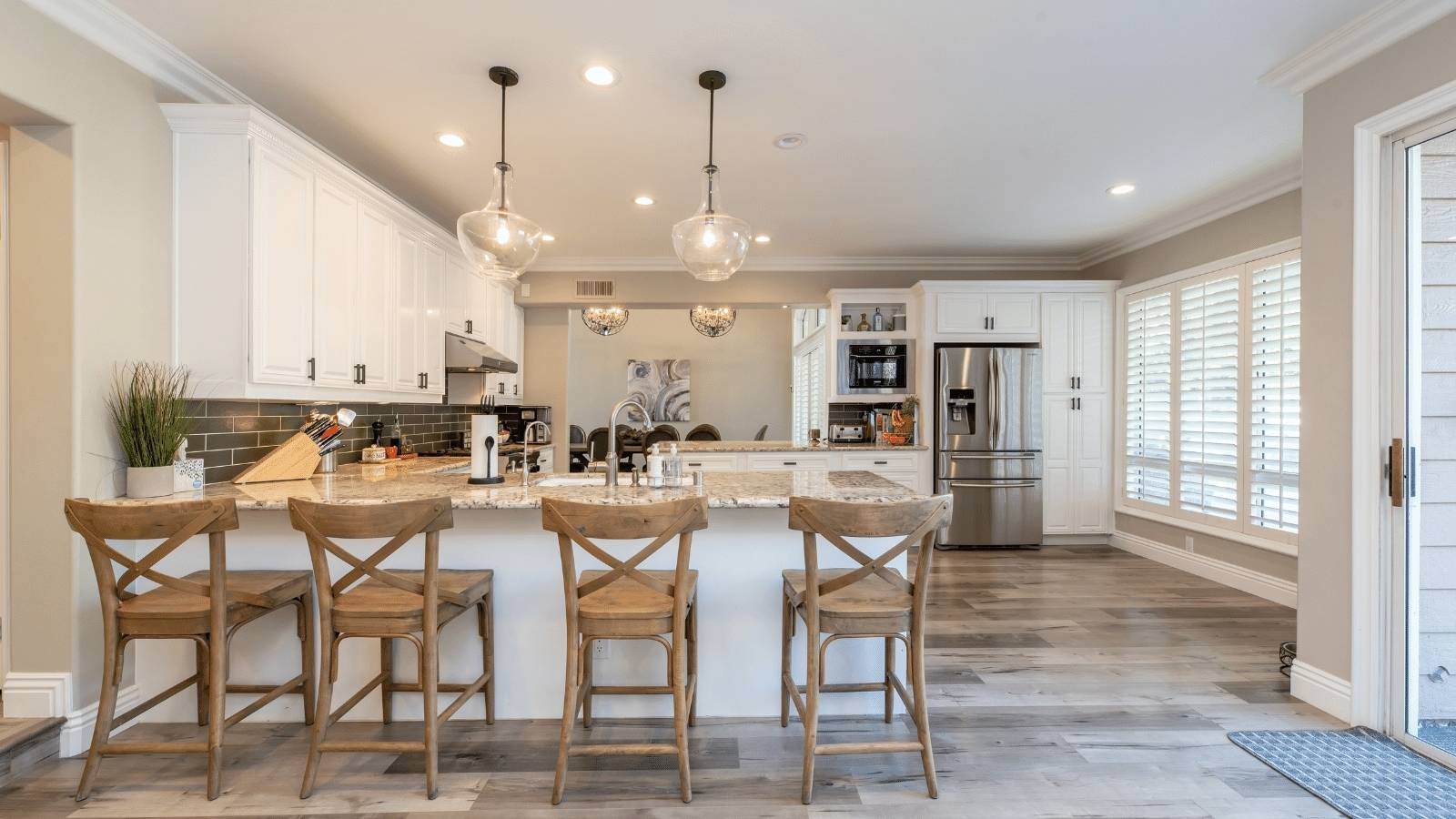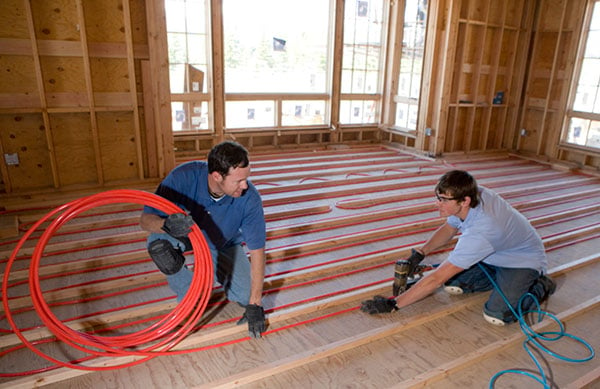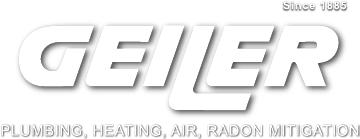You Need It Done Fast.
You Want It Done Right.
That's what we do - and we've
been doing it for over 140 years.
For Immediate Service
Call
or
Geothermal Products And Services
How Does It Work?
Geothermal Heating and Cooling systems take advantage of the constant temperature below the ground. In simple terms: this constant temperature provides heating in the winter and cooling in the summer.
Is it Environmentally Friendly?
Geothermal Heating and Cooling systems are considered a renewable resource by the U.S. EPA. This reduces impact to the environment in air emissions compared to electric heat pumps and coal or gas furnaces. Currently, over 60% of electricity in the Cincinnati area is produced from coal.
Will It Reduce My Utility Bill?
Geothermal Heating and Cooling systems can provide significant savings when properly installed and maintained.Geothermal Heating extracts heat from the ground so you are not consuming massive amounts electricity to generate heat.Geothermal Cooling takes advantage of lower below ground temperatures and are often 4 times more efficient than traditional air conditioning.
![]()
Geothermal Cooling
Do I need separate geothermal ground loops for heating and cooling?
No, the same loop works for both. When changing from heating to cooling, or vise versa, the flow of heat is reversed by a mechanism inside the unit.
What is a closed-loop system?
The term “closed loop” is used to describe a geothermal heat pump system that uses a continuous loop of special buried plastic pipe as a heat exchanger. The pipe is connected to the indoor heat pump to form a sealed, underground loop through which water or an anti-freeze solution (if you live in colder climates) is circulated. Unlike an open-loop system that consumes water from a well, a closed-loop system recirculates its heat–transferring solution in a pressurized pipe.
Where can this loop be located?
That depends on land availability and terrain. Closed-loops are trenched horizontally in yards adjacent to the home if the yard is large enough. Or, for smaller yards, the loops can be installed vertically using a drill rig, much like a water well installation. Here is an example of a home that uses a vertical geothermal loop.
How long will the loop pipe last?
Properly installed, these pipes will last over 50 years.
Will an earth loop affect my lawn or landscape?
No, research has proven that loops have no adverse effect on grass, trees or shrubs. Most horizontal loop installations use trenches about 3 feet wide or less. This, of course, will leave temporary bare areas that can be restored with grass seed or sod. Vertical loops require less space and result in minimal lawn damage.
I have a pond near my home. Can I put a loop in it?
Yes, if it’s deep enough and large enough. A minimum of 8-10 feet in depth at its lowest level during the year is needed for a pond to be useable. Generally, a minimum of 1/2-acre pond is required to provide adequate surface area for heat transfer.
Geiler is the only union trained residential HVAC company in the area.
Our program includes a 5-year apprentice program, even after completion of Technical School & EPA certifications.
Our technicians receive unparalleled training.
That means time saved & accurate repairs resolving the root cause of the problem.
We dispatch our expertly trained technicians from their homes to avoid delays in providing service.

![]()
Geothermal Heating
We are experts in the installation and maintenance of Geothermal heating and cooling systems and proud to offer ClimateMaster products.

Here is what they have to say about geothermal systems.
What is a geothermal heat pump?
A geothermal or “ground-source” heat pump is an electrically-powered device that uses the natural heat storage ability of the earth and/or the earth’s groundwater to heat and cool your home or business at very high efficiencies.
How does a geothermal pump work?
Like any type of heat pump, it simply moves heat energy from one place to another. A geothermal heat pump is like a refrigerator because they work using the same scientific principle. By using refrigeration, the geothermal heat pump removes heat energy stored in the earth and/or the earth’s groundwater and transfers it to the home. Read more on our How Does a Geothermal Heat Pump Work page.
How is heat transferred between the earth and the home?
The earth has the ability to absorb and store heat energy. To use that stored geothermal energy, heat is extracted from the earth through a liquid medium (water or an anti-freeze solution) circulated in the ground via open or closed earth loops and is transferred to the heat pump heat exchanger. There, the heat is used to heat your home. In the summer, the process is reversed and indoor heat is extracted from your home and transferred to the earth through the liquid circulating in the loops underground. A video is available here to better show you how geothermal energy works.

What is an open-loop system?
The term “open loop” is commonly used to describe a geothermal heat pump system that uses groundwater from a conventional well as a heat source in winter and a heat sink in summer. The groundwater is pumped through the heat pump where heat is extracted (in winter) or rejected (in summer), then the uncontaminated water is disposed of in an appropriate manner. Since groundwater is a relatively constant temperature year-round, it is an excellent heat source/heat sink for a geothermal system.
Geothermal Water Heating
Can a geothermal heat pump also heat water for my home?
Yes, using a hot water generator (HWG), some types of geothermal heat pumps can save you up to 50% on your water-heating bill by pre-heating tank water. The HWG is a factory-installed option.
Can a geothermal heat pump be added to my fossil fuel (gas, oil, propane) furnace?
Split systems can easily be added to existing furnaces for those wishing
to have a dual-fuel system. Use the heat pump as the main heating source and a furnace as a supplement in extremely cold weather if additional heat is needed.
I have ductwork, but will it work with this system?
In most circumstances, yes. Your installing contractor should be able to determine ductwork requirements and any minor modifications, if needed.
What does a geothermal system cost?
A geothermal system for the typical home will cost more than if you bought a conventional central air conditioning system. But you wouldn’t be comparing “apples to apples.” To get an accurate comparison of costs you need to consider the following:
- Payback, or how long it takes to recover the difference in costs between the two systems using energy savings. Payback for most geothermal heat pump systems runs three to five years.
- State and local tax credits / incentives will significantly reduce the upfront cost of installing a geothermal system.
- Energy efficiency of the two systems. To get an accurate picture, make sure efficiency claims are substantiated. Your lifestyle and how well your home is insulated affect how economical a system will be, too.
- Total operating savings from heating, cooling and domestic hot water must be combined to get an accurate picture of total energy savings.
- Energy costs and availability, both present and future.
- Maintenance costs and system reliability.
- System lifespan.
- Take a look at our geothermal savings calculator to see how much geothermal can save you on your monthly energy bills.
Can I use a heat pump for radiant/hydronic floor heating (warm floors)?

Yes, water-to-water heat pumps
FIND IT FAST!

FIND IT FAST!
Work with Professionals
We are a fully licensed and insured company. All of our employees are fully trained in their trade, safety trained and drug tested.
Our factory trained technicians will expertly diagnose, repair and service your furnace or HVAC to restore maximum efficiency and comfort.
Our trucks are fully stocked for equipment repairs and all our technicians are professionally factory-trained, nationally certified and state licensed.
![]()
Don't forget to check out our blog
The Geiler Company
Practical tips for DIY projects and when you need to call a professional | Air Quality | Plumbing | HVAC | Water Quality
Awesome company! Our furnace stopped working and it turned out we needed a new one! They got started the very next day and we couldn't be happier! Another popular name company couldn't come out right away so we would have had an extra day in the cold. Geiler is now my go-to company for anything HVAC or plumbing. Thank you Geiler!
Dr V
Called just before holiday weekend. No rush needed. They called me back Monday and set time for Tuesday. Technician was on time, professional, answered questions and didn't try to upsell. Completed work timely and all is good again.
Mike Giordiano

.png)
.png)
.png)
-1.png)
.png)
-1.png)


.png)

.png)
.png)
-1.png)
.png)
.png)
.png)
